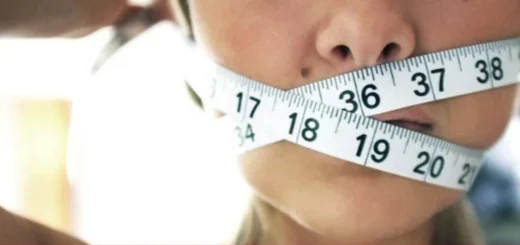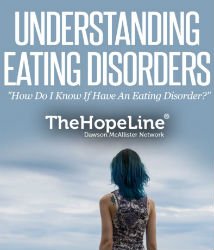Reflexology for Holistic Healing: A Supportive Therapy in Eating Disorder Recovery
Eating disorders are complex conditions characterized by severe disturbances in eating behaviors and related thoughts and emotions. While traditional medical treatments focus on addressing the physical and psychological aspects of these disorders, holistic therapies like reflexology are gaining attention for their potential to complement these treatments.
Reflexology, a therapy involving the application of pressure to specific points on the feet, hands, and ears, offers a unique approach to healing. It promotes relaxation, reduces anxiety, and encourages a rejuvenating sense of body positivity. By integrating reflexology into recovery programs, individuals battling eating disorders can experience an enhanced recovery process that not only alleviates physical symptoms but also fortifies mental well-being.
Table of Contents
Understanding Reflexology
Reflexology is an ancient practice rooted in the belief that specific points on the feet, hands, and ears correspond to different body organs and systems. This complementary therapy involves applying pressure to these reflex points with the aim of promoting health and wellness throughout the body. Here’s a deeper look into what reflexology is and how it functions as a therapeutic modality:
What is Reflexology?
Reflexology is more than just a foot massage; it’s a therapeutic technique that uses specific pressure techniques to stimulate reflex areas that purportedly correspond to every part of the body, including glands and organs. The theory is that this stimulation helps to balance the nervous system and stimulates the release of endorphins, natural body chemicals that relieve pain and stress.
The Science Behind Reflexology
While reflexology is often categorized as a pseudoscience by the mainstream medical community due to a lack of direct scientific evidence linking reflex points to body organs, several studies suggest it can help reduce pain, anxiety, and other symptoms associated with various conditions. For individuals with eating disorders, whose conditions often involve high levels of stress and anxiety, reflexology may offer significant benefits by helping to regulate the autonomic nervous system.
Benefits of Reflexology in General Health
- Stress Reduction: By reducing the body’s stress responses, reflexology can help manage chronic stress, a common issue in eating disorder recovery.
- Improved Circulation: Enhanced circulation can lead to better oxygenation and nutrient supply to vital body organs and tissues.
- Detoxification: Reflexology is believed to improve lymphatic drainage and waste elimination, supporting detoxification processes.
- Enhanced Relaxation: Through calming the nervous system, reflexology promotes relaxation and can improve sleep patterns, crucial for recovery and overall health.
In the next section, we will explore how specifically reflexology can be applied to support the treatment of eating disorders, focusing on its psychological and physiological benefits.
Reflexology in the Treatment of Eating Disorders
Reflexology can play a pivotal role in the comprehensive treatment of eating disorders by addressing both psychological and physiological aspects. This section delves into how reflexology can be particularly beneficial for individuals battling these complex conditions.
Psychological Benefits
- Reducing Anxiety and Stress: Eating disorders are often accompanied by high levels of anxiety and stress. Reflexology helps to calm the mind and alleviate stress by inducing deep relaxation and reducing the levels of cortisol, a stress hormone, in the body.
- Enhancing Emotional Well-being: Regular reflexology sessions can improve overall mood and emotional stability by stimulating the release of endorphins, often referred to as ‘feel-good’ hormones. This emotional support is crucial for individuals who often feel overwhelmed by negative emotions associated with eating disorders.
Physiological Benefits
- Improving Digestive Function: Many individuals with eating disorders experience gastrointestinal issues due to irregular eating habits. Reflexology can help stimulate digestive functions and improve gut motility, which is essential for better digestion and nutrient absorption.
- Supporting Hormonal Balance: Reflexology may influence the endocrine system, which is responsible for hormone production and regulation. Balancing hormones can be particularly beneficial in treating eating disorders, which often disrupt normal hormonal functions.
Integrating Reflexology with Conventional Treatments
While reflexology can offer significant benefits on its own, its true strength lies in its ability to integrate seamlessly with conventional treatments for eating disorders. Here’s how:
- Complementing Medical Treatments: Reflexology can be used alongside medication and nutritional counseling, providing a holistic approach that targets the disorder from multiple angles.
- Support During Therapy: Psychological therapies are a cornerstone of eating disorder treatment. Reflexology can enhance the effectiveness of psychological treatments by reducing anxiety and improving the patient’s overall sense of well-being, making them more receptive to therapy.
In the next section, we will explore how reflexology contributes to promoting body positivity and self-care, essential components in the recovery from eating disorders. This approach not only helps in healing physically but also empowers individuals to foster a healthier relationship with their bodies.
Reflexology for Body Positivity and Self-Care
Reflexology can significantly contribute to the journey towards body positivity and self-care, especially for individuals recovering from eating disorders. This therapy not only alleviates physical symptoms but also enhances mental well-being, fostering a healthier relationship with one’s body.
Enhancing Body Awareness
- Mind-Body Connection: Reflexology encourages individuals to tune into their bodies in a non-judgmental way. This heightened awareness can help break the cycle of negative body image and promote a more compassionate and appreciative perspective towards one’s physical self.
- Recognizing Bodily Needs: Through regular sessions, individuals may become more attuned to their body’s signals, such as hunger, fullness, and fatigue, aiding in the recovery process by promoting healthier eating habits and energy management.
Promoting a Positive Body Image
- Reducing Body Dysmorphia: By alleviating anxiety and stress, reflexology can help mitigate symptoms of body dysmorphia, a common challenge among those with eating disorders. As the mind relaxes, there’s often a more realistic perception of body image.
- Empowerment Through Self-Care: Engaging in reflexology is an act of self-care that can improve self-esteem. Regularly setting aside time for sessions can make individuals feel valued and cared for, reinforcing the belief that they are worthy of good health and wellness.
Frequently Asked Questions about Reflexology for Eating Disorders
What is reflexology?
Reflexology is a complementary therapy that involves applying pressure to specific points on the feet, hands, and sometimes ears. These points are believed to correspond to different organs and systems in the body. The goal of reflexology is to promote balance and natural healing.
How can reflexology help someone with an eating disorder?
Reflexology can support individuals with eating disorders by reducing stress and anxiety, enhancing relaxation, and promoting a positive relationship with the body. It’s used as a complementary therapy to help manage emotional challenges and improve overall well-being.
Is reflexology safe for everyone with an eating disorder?
While reflexology is generally safe, it’s important to consult with a healthcare provider before starting any new treatment. Individuals with certain health conditions, such as foot injuries or severe circulatory issues, may need to avoid or modify reflexology treatments.
Can reflexology cure eating disorders?
No, reflexology is not a cure for eating disorders. It is a supportive therapy that can be used alongside conventional treatments such as nutritional therapy, psychological counseling, and medical supervision to help manage symptoms and improve quality of life.
How often should someone receive reflexology treatments?
The frequency of reflexology sessions can vary depending on individual needs and goals. It’s typically recommended to start with weekly sessions to gauge how the body responds, with adjustments made as necessary.
What should I look for in a reflexologist?
Look for a reflexologist who is certified and experienced, especially one familiar with handling clients with eating disorders. It’s important that they maintain a professional standard of practice and are knowledgeable about when and how to apply the treatment safely.
Where can I find a qualified reflexologist in Auckland?
You can visit Reflexology Auckland to find qualified and experienced practitioners who specialize in various reflexology techniques, including those suited for individuals with eating disorders.
Conclusion
In this article, we’ve explored the multifaceted role of reflexology in supporting individuals through the recovery of eating disorders, highlighting its ability to not only address physical and emotional symptoms but also enhance body positivity and self-care. As we conclude, it’s important to recognize reflexology as a valuable component of a holistic recovery strategy, one that complements traditional treatments and empowers individuals towards lasting wellness.
Further Resources
For those interested in exploring reflexology as part of a holistic treatment plan for eating disorders, here are some valuable resources:
- Reflexology Auckland: If you’re in Auckland and looking for specialized reflexology services that cater specifically to individuals with eating disorders, Reflexology Auckland is a prime resource. They offer tailored treatments designed to support the unique needs of those recovering from these conditions.
- Educational Articles and Research: For a deeper understanding of how reflexology can benefit those with eating disorders, Reflexology Auckland provides access to a range of articles and research papers. These resources offer insights into the effectiveness of reflexology in managing stress, anxiety, and other symptoms associated with eating disorders.
- Books on Reflexology: For comprehensive guides on the principles and practices of reflexology, books such as “Reflexology: Beginners Guide to Eliminate Pain, Lose Weight and De-Stress with Ancient Techniques” by Ingrid Sen offer insights into how reflexology works and its benefits for overall health, including mental health.
These resources are designed to provide both individuals and professionals with the tools and knowledge needed to effectively integrate reflexology into treatment plans for eating disorders, promoting recovery and a healthier relationship with the body.









Recent Comments